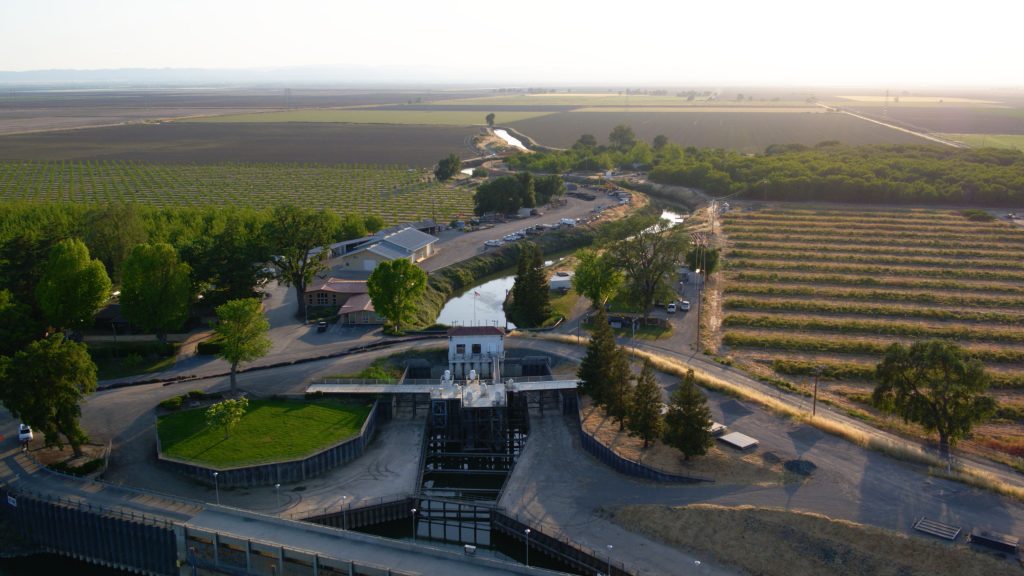
It was supposed to be just like the other trips they took to the Sonoma Coast. But this time, they wouldn’t make it to Fort Bragg for the Memorial Day Weekend holiday. Parked along a two-lane road, the brake-line in their RV-Bus conversion failed and the Bair family was tossed about the camper as it rolled several times down the steep embankment.
Three-year-old Lewis Bair came away with only a few minor cuts and bruises. His parents, Sheryl and Lewis, 18 and 21 years old at the time, were both paralyzed in the accident.
That single moment may have changed everything – but it didn’t limit who the Bair family would become or how they would act from that point on.
“To my parent’s credit, we did everything that other families did,” said Lewis Bair, III. “They may have had physical challenges but it never stopped them from living life to the fullest.” His parents would not let that one fateful day ruin their rest of their lives.
In fact, life would be tackled with a new found determination and zeal. An outlook that has shaped how the younger Lewis goes about his job as general manager of Reclamation District 108.
“When problems arise or we run into difficult challenges, I think about what my parents had to do and it reminds me that we can overcome anything that comes our way.”
As the lead water manager of one of the oldest reclamation districts in the state, Lewis is confronted with the task of delivering water to landowners who are growing rice, walnuts, tomatoes and other crops with the needs of wildlife that depend on the precious resource for survival.
Bordering along the Sacramento River, RD108 has been a leader in flood control since the 1800s, it developed new irrigation techniques in the 1900s and now in the 2000s, is setting new standards of how to integrate fish and birds into its everyday practices.

“We know that the health of salmon and migratory birds relies on how and when we use our water. RD108 has built fish screens to prevent juvenile salmon from veering off into irrigation canals, helped foster programs to grow fish food on fields to offer nourishment for salmon in the Sacramento River and have been flooding rice fields in the late fall and winter to provide shore birds and waterfowl rearing habitat sites along the Pacific Flyway.”

Over the last 150 years, RD108 has rarely shied away from addressing the largest issues of the day. The people of RD108 have rarely made a determined effort to do what is right for people and wildlife.
Not only has Lewis helped continue that spirit, he has fostered relationships and expand the district’s work with conservation groups to determine the best practices in creating wildlife habitat – while still maintaining functioning farm lands.
“I truly believe this is a special moment in time where we have significant alignment among state and federal agencies, environmental organizations, fishing groups, tribes and farmers who are all energized to change the narrative around resource management. The opportunity is ripe for all of us to work together for a future where we reimagine a Sacramento Valley that can serve multiple benefits.”
It is the perfect attitude for a job that is requiring more patience, understanding and collaboration than ever before.
Lewis doesn’t remember the accident that changed his family’s life, but the aftermath is still felt today. While it was devastating in one way, in another it has helped shape a man who is leading with a belief that together we can create a better future for the entire Sacramento Valley.
Listen to the podcast here.
Click below for more details.
Like a human fingerprint, California’s Sacramento Valley is truly unique. On the leading edge of ecological and economical sustainability, it’s also an exceptional place to live, work and raise a family. The Sacramento Valley joins together a world-renowned mosaic of natural abundance: productive farmlands, wildlife refuges and managed wetlands, cities and rural communities, and meandering rivers that support and feed fisheries and natural habitats. Through efficient management of the region’s water resources, the Sacramento Valley will continue to provide what’s essential to California’s future success and prosperity. Nourishment and sustenance from the fields, habitats for fish and wildlife, recreation and a special quality of life—the Sacramento Valley is home to all of this, and more.





Lewis, we are blessed to have such a good friend, and fine human being, working with all of us that farm in the Sacramento Valley. Other parts of the State have their own challenges that are much different than ours as it relates to water. However, with the natural resources and leadership we have in this Valley I truly believe we can foster a lasting environment for not only agriculture but for the communities and species that reside here, all of which deserve a clean and adequate water supply. Other folks talk a good story but simply lack the desire or ability to accomplish the vision that NCWA and yourself have brought to the North Valley.
Thank you
Charlie Hoppin